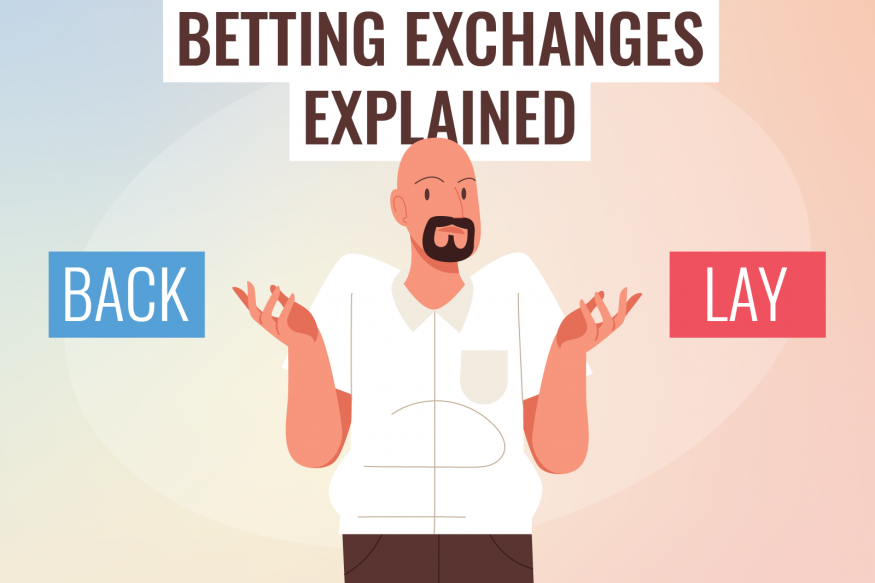Understanding Exchange Betting: A Complete Guide for Beginners

Introduction to Exchange Betting
Exchange betting is rapidly becoming a preferred method for many sports enthusiasts, offering a unique alternative to traditional sportsbook wagering. Rather than competing against the house, bettors face off against one another, setting their own odds and outcomes. In this guide, you'll discover how exchange betting works, its distinctions from conventional sports betting, and the pros and cons to consider before getting started.
How Exchange Betting Differs from Traditional Sportsbooks
Exchange betting revolutionizes the classic betting format by turning the tables: it allows individuals to wager against other punters rather than against bookmakers. The flexibility to both propose and accept odds sets betting exchanges apart from the fixed terms offered by bookmakers, often leading to more favorable odds for users.
How Does a Betting Exchange Operate?
A betting exchange is an online marketplace where bettors connect to wager directly against each other, bypassing the bookmaker entirely. Within this framework, bettors can choose to back an outcome (believing it will happen) or lay an outcome (betting it won’t happen), creating a dynamic ecosystem of wagering.
There are two primary roles:
- Back bettor: Predicts that a certain outcome will happen.
- Lay bettor: Bets against the outcome occurring, assuming the risk typically taken by the bookmaker.

Placing Back Bets on an Exchange
When you place a back bet, you’re wagering on a specific event to occur-very similar to a standard sportsbook bet. The main difference is that you’re free to request your ideal odds, not just accept what's offered. If another exchange user accepts your odds as a lay bet, the match is made, and the bet is live. Should your prediction come true, you win from the lay bettor, minus a small commission charged by the exchange platform.

The Role of Lay Betting on an Exchange
Lay betting is where things get truly innovative. As a lay bettor, you provide odds and accept bets from others, betting that a selected event will not occur. For example, if someone backs Team X to win, and you lay that bet, you're confident Team X won't win (a draw or loss).
Exchanges clarify payouts and potential liabilities:
- Liability: The amount you stand to lose if your lay bet fails (often higher than your stake).
- Payout: The amount you could gain if your prediction is correct, determined by your stake and odds.

Comparing Betting Exchanges to Bookmakers
While both options appeal to different types of sports bettors, there are fundamental differences:
| Feature | Bookmaker | Betting Exchange |
|---|---|---|
| Profit Model | Sets odds to encourage balanced betting; profits from player losses | Charges commission on winning bets, typically 2-8% |
| Odds | Provides set odds, usually less competitive | Users set odds, often leading to better value |
| Who You're Betting Against | The bookmaker ("the house") | Other individual bettors |
| Special Offers | Frequent bonuses, free bets, and odds boosts | Promotions are rare or absent |
| Cash-Out Option | Usually available | Not typically offered; bets stand until event ends |
Advantages and Disadvantages of Betting Exchanges

Betting exchanges bring several key benefits but also entail certain limitations that are worth considering.
Advantages
- Superior Odds: Betting directly with other individuals removes the bookmaker's margin, often resulting in more attractive odds.
- Flexible Betting: The option to lay bets (bet against outcomes) adds a new dimension not typically available at standard sportsbooks.
Disadvantages
- Finding Matched Bets: Bets may take longer to be matched, especially for less popular sports or niche markets.
- Lack of Promotions: Exchange platforms generally don't offer bonuses, free bets, or loyalty programs.
Availability of Betting Exchanges in the United States
Although exchange betting is legal in the US, the practical rollout is hampered by federal regulations, most notably the Federal Wire Act of 1961. This act restricts the exchange of gambling data across state lines, complicating the development of nationwide exchange platforms.
Because sports betting is a relatively new legal development in many US states, introducing exchange betting presents extra regulatory hurdles. That said, efforts are underway; for instance, Prophet Exchange and SportTrade have both announced plans to operate in New Jersey.
Conclusion: Is Exchange Betting Right for You?
Exchange betting offers a dynamic and interactive approach to wagering, putting more power in the hands of bettors while often delivering better odds and innovative options like lay betting. However, it requires a willingness to explore new systems and accept certain limitations, such as fewer promotions and occasional delays in matching bets. If you're seeking more control and variety in your sports betting experience, a betting exchange could be well worth considering.














